- Home
- Jack Higgins
Eye of the Storm Page 2
Eye of the Storm Read online
Page 2
His friendship with Saddam Hussein had been a natural development from the fact that the Iraqi President had been greatly supported in his early days in politics by Aroun’s father, who was also an important member of the Baath Party. It had placed Aroun in a privileged position as regards the development of his country’s oilfields, brought him riches beyond calculation.
After the first billion you stopped counting, another favorite saying. And now he was faced with disaster. Not only the promised riches of the Kuwait oilfields snatched from him, but that portion of his wealth which stemmed from Iraq dried up, finished as a result of the Coalition’s massive airstrikes that had devastated his country since the seventeenth of January.
He was no fool. He knew that the game was over, should probably have never started, and that Saddam Hussein’s dream was already finished. As a businessman he played the percentages and that didn’t offer Iraq too much of a chance in the ground war that must eventually come.
He was far from ruined in personal terms. He had oil interests still in the USA, and the fact that he was a French as well as an Iraqi citizen gave Washington a problem. Then there was his shipping empire and vast quantities of real estate in various capital cities around the world. But that wasn’t the point. He was angry when he switched on the television and saw what was happening in Baghdad each night, for, surprising in one so self-centered, he was a patriot. There was also the fact, infinitely more important, that his father had been killed in a bombing raid on the third night of the air war.
And there was a great secret in his life, for in August, shortly after the invasion of Kuwait by Iraqi forces, Aroun had been sent for by Saddam Hussein himself. Sitting here by the French window, a glass of brandy in one hand, rain slanting across the terrace, he gazed out across the Bois de Boulogne in the evening light and remembered that meeting.
There was an air-raid practice in progress as he was driven in an army Land-Rover through the streets of Baghdad, darkness everywhere. The driver was a young intelligence captain named Rashid, whom he had met before, one of the new breed, trained by the British at Sandhurst. Aroun gave him an English cigarette and took one himself.
“What do you think, will they make some sort of move?”
“The Americans and Brits?” Rashid was being careful. “Who knows? They’re certainly reacting. President Bush seems to be taking a hard line.”
“No, you’re mistaken,” Aroun said. “I’ve met the man face-to-face twice now at White House functions. He’s what our American friends call a nice guy. There’s no steel there at all.”
Rashid shrugged. “I’m a simple man, Mr. Aroun, a soldier, and perhaps I see things simply. Here is a man, a Navy combat pilot at twenty, who saw a great deal of active service, who was shot down over the Sea of Japan and survived to be awarded the Distinguished Flying Cross. I would not underestimate such a man.”
Aroun frowned. “Come on, my friend, the Americans aren’t going to come halfway round the world with an army to protect one little Arab state.”
“Isn’t that exactly what the British did in the Falklands War?” Rashid reminded him. “They never expected such a reaction in Argentina. Of course they had Thatcher’s determination behind them, the Brits, I mean.”
“Damned woman,” Aroun said and leaned back as they went in through the gate of the presidential palace, feeling suddenly depressed.
He followed Rashid along corridors of marble splendor, the young officer leading the way, a torch in one hand. It was a strange, rather eerie experience, following that small pool of light on the floor, their footfalls echoing. There was a sentry on each side of the ornate door they finally halted before. Rashid opened it and they went in.
Saddam Hussein was alone, sitting in uniform at a large desk, the only light a shaded lamp. He was writing, slowly and carefully, looked up and smiled, putting down his pen.
“Michael.” He came round the desk and embraced Aroun like a brother. “Your father? He is well?”
“In excellent health, my President.”
“Give him my respects. You look well, Michael. Paris suits you.” He smiled again. “Smoke if you want. I know you like to. The doctors have unfortunately had to tell me to cut it out or else.”
He sat down behind the desk again and Aroun sat opposite, aware of Rashid against the wall in the darkness. “Paris was fine, but my place is here now in these difficult times.”
Saddam Hussein shook his head. “Not true, Michael. I have soldiers in plenty, but few men such as you. You are rich, famous, accepted at the highest levels of society and government anywhere in the world. More than that, because of your beloved mother of blessed memory, you are not just an Iraqi, but also a French citizen. No, Michael, I want you in Paris.”
“But why, my President?” Aroun asked.
“Because one day I may require you to do a service for me and for your country that only you could perform.”
Aroun said, “You can rely on me totally, you know that.” Saddam Hussein got up and paced to the nearest window, opened the shutters and stepped on to the terrace. The all-clear sounded mournfully across the city and lights began to appear here and there.
“I still hope our friends in America and Britain stay in their own backyard, but if not . . .” He shrugged. “Then we may have to fight them in their own backyard. Remember, Michael, as the Prophet instructs us in the Koran, there is more truth in one sword than ten thousand words.” He paused and then carried on, still looking out across the city. “One sniper in the darkness, Michael, British SAS or Israeli, it doesn’t really matter, but what a coup—the death of Saddam Hussein.”
“God forbid it,” Michael Aroun said.
Saddam turned to him. “As God wills, Michael, in all things, but you see my point? The same would apply to Bush or the Thatcher woman. The proof that my arm reaches everywhere. The ultimate coup.” He turned. “Would you be capable of arranging such a thing, if necessary?”
Aroun had never felt so excited in his life. “I think so, my President. All things are possible, especially when sufficient money is involved. It would be my gift to you.”
“Good.” Saddam nodded. “You will return to Paris immediately. Captain Rashid will accompany you. He will have details of certain codes we will be using in radio broadcasts, that sort of thing. The day may never come, Michael, but if it does, . . .” He shrugged. “We have friends in the right places.” He turned to Rashid. “That KGB colonel at the Soviet Embassy in Paris?”
“Colonel Josef Makeev, my President.”
“Yes,” Saddam Hussein said to Aroun. “Like many of his kind not happy with the changes now taking place in Moscow. He will assist in any way he can. He’s already expressed his willingness.” He embraced Aroun, again like a brother. “Now go. I have work to do.”
The lights had still not come on in the palace and Aroun had stumbled out into the darkness of the corridor, following the beam of Rashid’s torch.
Since his return to Paris he had got to know Makeev well, keeping their acquaintance, by design, purely on a social level, meeting mainly at various embassy functions. And Saddam Hussein had been right. The Russian was very definitely on their side, only too willing to do anything that would cause problems for the United States or Great Britain.
The news from home, of course, had been bad. The buildup of such a gigantic army. Who could have expected it? And then in the early hours of the seventeenth of January the air war had begun. One bad thing after another and the ground attack still to come.
He poured himself another brandy, remembering his despairing rage at the news of his father’s death. He’d never been religious by inclination, but he’d found a mosque in a Paris side street to pray in. Not that it had done any good. The feeling of impotence was like a living thing inside him, and then came the morning when Ali Rashid had rushed into the great ornate sitting room, a notepad in one hand, his face pale and excited.
“It’s come, Mr. Aroun. The signal we’ve been waiting for
. I just heard it on the radio transmitter from Baghdad.”
The winds of heaven are blowing. Implement all that is on the table. May God be with you.
Aroun had gazed at it in wonder, his hand trembling as he held the notepad, and his voice was hoarse when he said, “The President was right. The day has come.”
“Exactly,” Rashid said. “Implement all that is on the table. We’re in business. I’ll get in touch with Makeev and arrange a meeting as soon as possible.”
Dillon stood at the French windows and peered out across the Avenue Victor Hugo to the Bois de Boulogne. He was whistling softly to himself, a strange, eerie little tune.
“Now this must be what the house agents call a favored location.”
“May I offer you a drink, Mr. Dillon?”
“A glass of champagne wouldn’t come amiss.”
“Have you a preference?” Aroun asked.
“Ah, the man who has everything,” Dillon said. “All right, Krug would be fine, but non-vintage. I prefer the grape mix.”
“A man of taste, I see.” Aroun nodded to Rashid, who opened a side door and went out.
Dillon, unbuttoning his reefer coat, took out a cigarette and lit it. “So, you need my services this old fox tells me.” He nodded at Makeev, who lounged against the fireplace warming himself. “The job of a lifetime, he said, and for a million pounds. Now what would I have to do for all that?”
Rashid entered quickly with the Krug in a bucket, three glasses on a tray. He put them on the table and started to open the bottle.
Aroun said, “I’m not sure, but it would have to be something very special. Something to show the world that Saddam Hussein can strike anywhere.”
“He needs something, the poor old sod,” Dillon said cheerfully. “Things aren’t going too well.” As Rashid finished filling three glasses, the Irishman added, “And what’s your trouble, son? Aren’t you joining us?”
Rashid smiled and Aroun said, “In spite of Winchester and Sandhurst, Mr. Dillon, Captain Rashid remains a very Muslim Muslim. He does not touch alcohol.”
“Well here’s to you.” Dillon raised his glass. “I respect a man with principles.”
“This would need to be big, Sean, no point in anything small. We’re not talking about blowing up five British Army paratroopers in Belfast,” Makeev said.
“Oh, it’s Bush you want, is it?” Dillon smiled. “The President of the United States flat on his back with a bullet in him?”
“Would that be so crazy?” Aroun demanded.
“It would be this time, son,” Dillon told him. “George Bush has not just taken on Saddam Hussein, he’s taken on the Arabs as a people. Oh, that’s total rubbish, of course, but it’s the way a lot of Arab fanatics see it. Groups like Hizbollah, the PLO or the wild cards like the Wrath of Allah people. The sort who would happily strap a bomb to their waist and detonate it while the President reached out to shake just another hand in the crowd. I know these people. I know how their minds tick. I’ve helped train Hizbollah people in Beirut. I’ve worked for the PLO.”
“What you are saying is nobody can get near Bush at the moment?”
“Read your papers. Anybody who looks even slightly Arab is keeping off the streets these days in New York and Washington.”
“But you, Mr. Dillon, do not look Arab to the slightest degree,” Aroun said. “For one thing you have fair hair.”
“So did Lawrence of Arabia and he used to pass himself off as an Arab.” Dillon shook his head. “President Bush has the finest security in the world, believe me. A ring of steel, and in present circumstances he’s going to stay home while this whole Gulf thing works through, mark my words.”
“What about their Secretary of State, James Baker?” Aroun said. “He’s been indulging in shuttle diplomacy throughout Europe.”
“Yes, but knowing when, that’s the problem. You’ll know he’s been in London or Paris when he’s already left and they show him on television. No, you can forget the Americans on this one.”
There was silence and Aroun looked glum. Makeev was the first to speak. “Give me, then, the benefit of your professional expertise, Sean. Where does one find the weakest security, as regards national leaders?”
Dillon laughed out loud. “Oh, I think your man here can answer that, Winchester and Sandhurst.”
Rashid smiled. “He’s right. The British are probably the best in the world at covert operations. The success of their Special Air Service Regiment speaks for itself, but in other areas . . .” He shook his head.
“Their first problem is bureaucracy,” Dillon told them. “The British Security Service operates in two main sections. What most people still call M15 and M16. M15 or D15, to be pedantic, specializes in counterespionage in Great Britain. The other lot operates abroad. Then you have Special Branch at Scotland Yard who have to be brought into the act to make any actual arrests. The Yard also has an antiterrorist squad. Then there’s army intelligence units galore. All life is there and they’re all at each other’s throats and that, gentlemen, is when mistakes begin to creep in.”
Rashid poured some more champagne into his glass. “And you are saying that makes for bad security with their leaders? The Queen, for example?”
“Come on,” Dillon said. “It’s not all that many years ago that the Queen woke up in Buckingham Palace and found an intruder sitting on the bed. How long ago, six years, since the IRA almost got Margaret Thatcher and the entire British Cabinet at a Brighton hotel during the Tory Party Conference?” He put down his glass and lit another cigarette. “The Brits are very old-fashioned. They like a policeman to wear a uniform so they know who he is and they don’t like being told what to do, and that applies to Cabinet Ministers who think nothing of strolling through the streets from their houses in Westminster to Parliament.”
“Fortunate for the rest of us,” Makeev said.
“Exactly,” Dillon said. “They even have to go softly—softly on terrorists—up to a degree anyway, not like French Intelligence. Jesus, if the lads in Action Service got their hands on me they’d have me spread out and my bollocks wired up for electricity before I knew what was happening. Mind you, even they are prone to the occasional error.”
“What do you mean?” Makeev demanded.
“Have you got a copy of the evening paper handy?”
“Certainly, I’ve been reading it,” Aroun said. “Ali, on my desk.”
Rashid returned with a copy of Paris Soir. Dillon said, “Page two. Read it out. You’ll find it interesting.”
He helped himself to more champagne while Rashid read the item aloud. “Mrs. Margaret Thatcher, until recently Prime Minister of Britain, is staying overnight at Choisy as a guest of President Mitterrand. They are to have further talks in the morning. She leaves at two o’clock for an air-force emergency field at Valenton, where an RAF plane returns her to England.”
“Incredible, isn’t it, that they could have allowed such a press release, but I guarantee the main London newspapers will carry that story also.”
There was a heavy silence and then Aroun said, “You’re not suggesting . . . ?”
Dillon said to Rashid. “You must have some road maps handy. Get them.”
Rashid went out quickly. Makeev said, “Good God, Sean, not even you . . .”
“Why not?” Dillon asked calmly and turned to Aroun. “I mean, you want something big, a major coup? Would Margaret Thatcher do, or are we just playing games here?”
Before Aroun could reply, Rashid came back with two or three road maps. He opened one out on the table and they looked at it, all except Makeev, who stayed by the fire.
“There we are, Choisy,” Rashid said. “Thirty miles from Paris, and here is the air-force field at Valenton only seven miles away.”
“Have you got a map of larger scale?”
“Yes.” Rashid unfolded one of the others.
“Good,” Dillon said. “It’s perfectly clear that only one country road links Choisy to Valenton and here,
about three miles before the airfield, there’s a railway crossing. Perfect.”
“For what?” Aroun demanded.
“An ambush. Look, I know how these things operate. There’ll be one car, two at the most, and an escort. Maybe half a dozen CRS police on motorbikes.”
“My God!” Aroun whispered.
“Yes, well. He’s got very little to do with it. It could work. Fast, very simple. What the Brits call a piece of cake.”
Aroun turned in appeal to Makeev, who shrugged. “He means it, Michael. You said this was what you wanted, so make up your mind.”
Aroun took a deep breath and turned back to Dillon. “All right.”
“Good,” Dillon said calmly. He reached for a pad and pencil on the table and wrote on it quickly. “Those are the details of my numbered bank account in Zurich. You’ll transfer one million pounds to it first thing in the morning.”
“In advance?” Rashid said. “Isn’t that expecting rather a lot?”
“No, my old son, it’s you people who are expecting rather a lot, and the rules have changed. On successful completion, I’ll expect a further million.”
“Now look here,” Rashid started, but Aroun held up a hand.
“Fine, Mr. Dillon, and cheap at the price. Now what can we do for you?”
“I need operating money. I presume a man like you keeps large supplies of the filthy stuff around the house?”
“Very large,” Aroun smiled. “How much?”
“Can you manage dollars? Say twenty thousand?”
“Of course.” Aroun nodded to Rashid, who went to the far end of the room, swung a large oil painting to one side disclosing a wall safe, which he started to open.
Makeev said, “And what can I do?”
“The old warehouse in rue de Helier, the one we’ve used before. You’ve still got a key?”

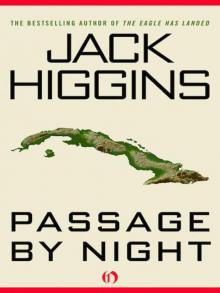 Passage by Night (v5)
Passage by Night (v5)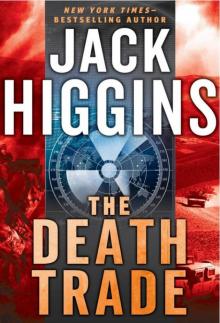 The Death Trade sd-20
The Death Trade sd-20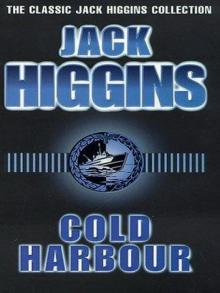 Cold Harbour
Cold Harbour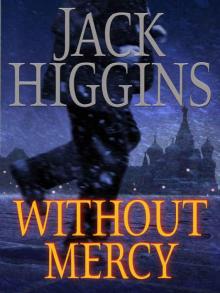 Without Mercy
Without Mercy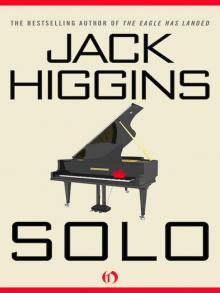 Solo (Aka the Cretan Lover)(1980)
Solo (Aka the Cretan Lover)(1980)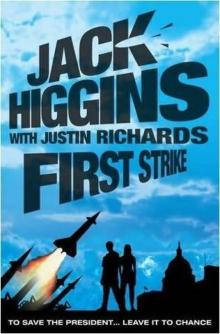 First Strike
First Strike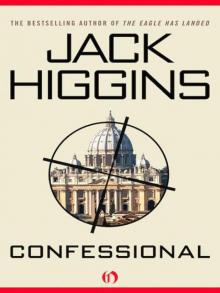 Confessional - Devlin 03 (v5)
Confessional - Devlin 03 (v5)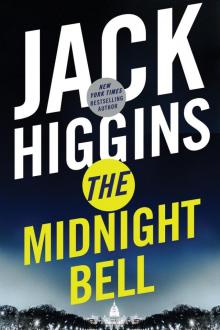 The Midnight Bell
The Midnight Bell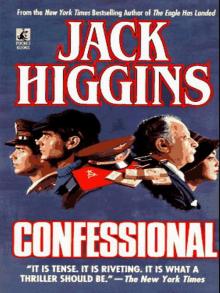 Confessional
Confessional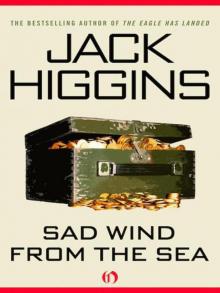 Sad Wind from the Sea (v5)
Sad Wind from the Sea (v5)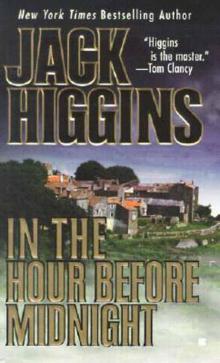 In The Hour Before Midnight aka The Sicilian Heritage
In The Hour Before Midnight aka The Sicilian Heritage Wrath of the Lion
Wrath of the Lion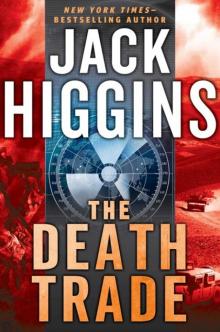 SDillon 20 - The Death Trade
SDillon 20 - The Death Trade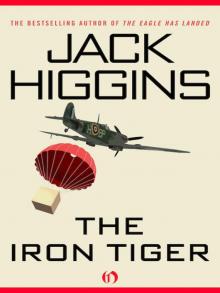 the Iron Tiger (1974)
the Iron Tiger (1974)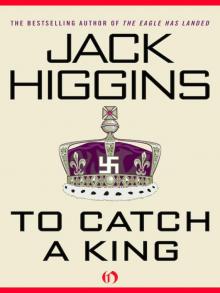 To Catch a King
To Catch a King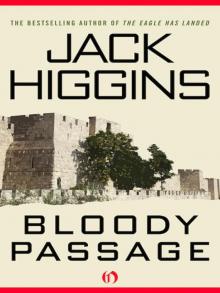 Bloody Passage (1999)
Bloody Passage (1999)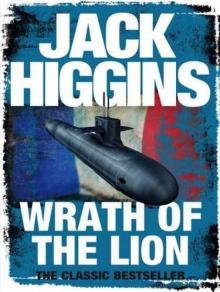 Wrath of the Lion sd-8
Wrath of the Lion sd-8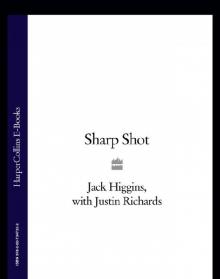 Sharp Shot
Sharp Shot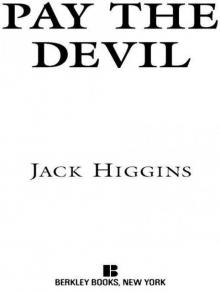 Pay the Devil (v5)
Pay the Devil (v5) A Devil Is Waiting
A Devil Is Waiting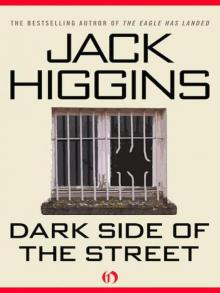 Dark Side of the Street - Simon Vaughn 01 (v5)
Dark Side of the Street - Simon Vaughn 01 (v5)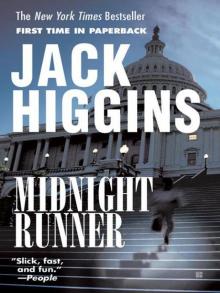 Midnight Runner - Sean Dillon 10
Midnight Runner - Sean Dillon 10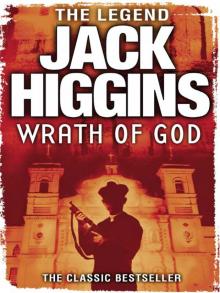 Wrath of God
Wrath of God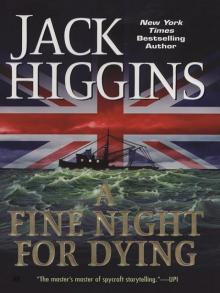 A Fine Night for Dying
A Fine Night for Dying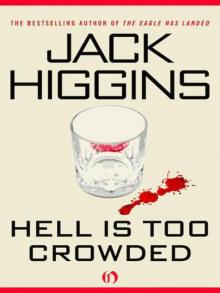 Hell Is Too Crowded v5)
Hell Is Too Crowded v5)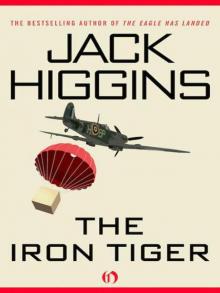 the Iron Tiger (v5)
the Iron Tiger (v5)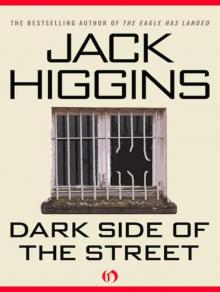 Dark Side of the Street pc-5
Dark Side of the Street pc-5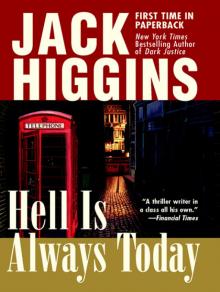 Hell Is Always Today
Hell Is Always Today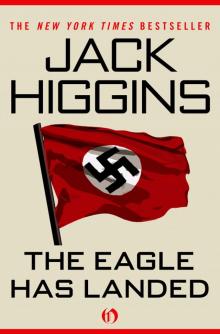 Eagle Has Landed
Eagle Has Landed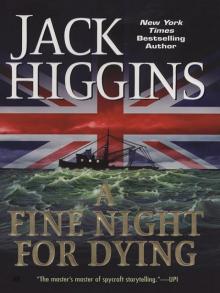 A Fine Night for Dying pc-6
A Fine Night for Dying pc-6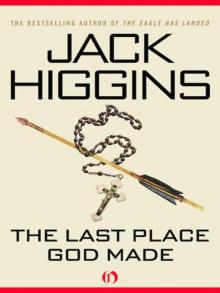 the Last Place God Made (v5)
the Last Place God Made (v5)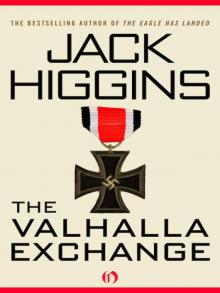 the Valhalla Exchange (1976)
the Valhalla Exchange (1976)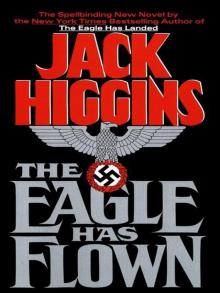 The Eagle Has Flown
The Eagle Has Flown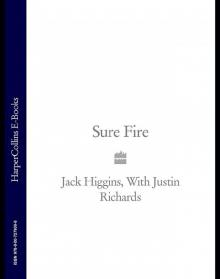 Sure Fire
Sure Fire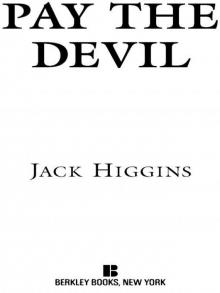 Pay the Devil (1999)
Pay the Devil (1999)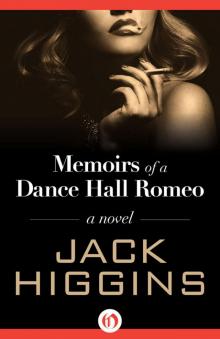 Memoirs of a Dance Hall Romeo
Memoirs of a Dance Hall Romeo![a Prayer for the Dying (1974)[1] Read online](http://i1.bookreadfree.com/i1/04/02/a_prayer_for_the_dying_19741_preview.jpg) a Prayer for the Dying (1974)[1]
a Prayer for the Dying (1974)[1]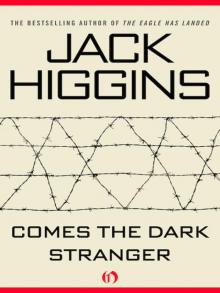 Comes the Dark Stranger
Comes the Dark Stranger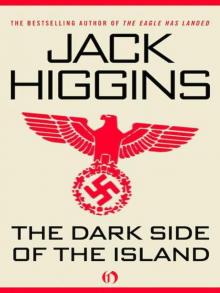 Dark Side Of the Island (v5)
Dark Side Of the Island (v5)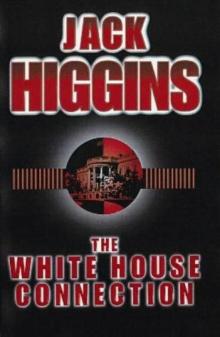 The White House Connection sd-7
The White House Connection sd-7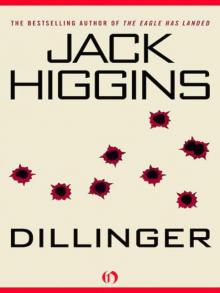 Dillinger (v5)
Dillinger (v5) Eye of the Storm
Eye of the Storm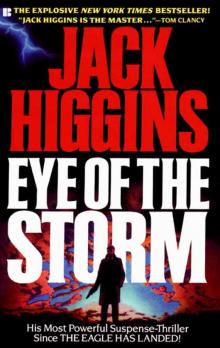 Eye Of The Storm aka Midnight Man
Eye Of The Storm aka Midnight Man A Darker Place
A Darker Place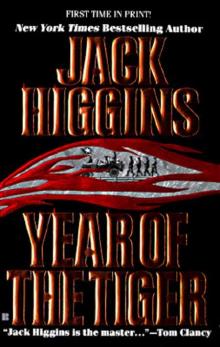 Year Of The Tiger
Year Of The Tiger Death Run
Death Run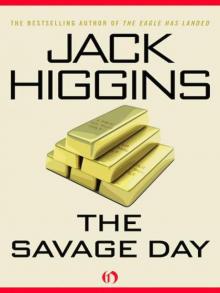 the Savage Day - Simon Vaughn 02 (v5)
the Savage Day - Simon Vaughn 02 (v5)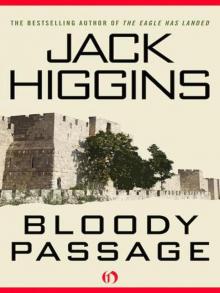 Bloody Passage (v5)
Bloody Passage (v5)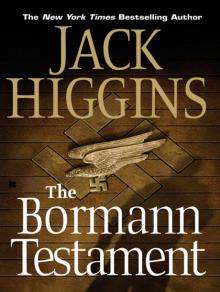 The Bormann Testament
The Bormann Testament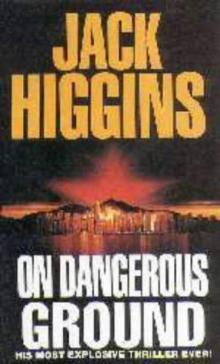 On dangerous ground sd-3
On dangerous ground sd-3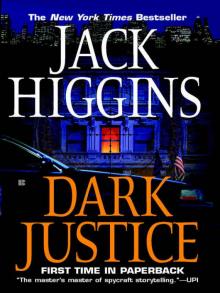 Dark Justice
Dark Justice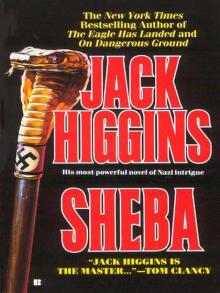 Sheba
Sheba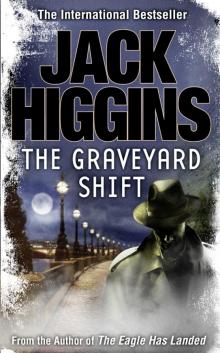 The Graveyard Shift
The Graveyard Shift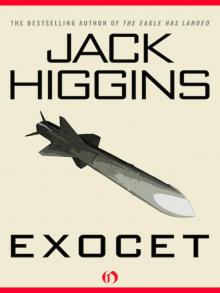 Exocet (1983)
Exocet (1983)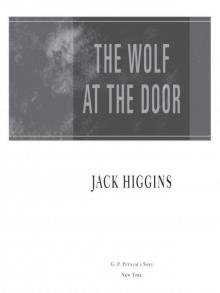 The Wolf at the Door
The Wolf at the Door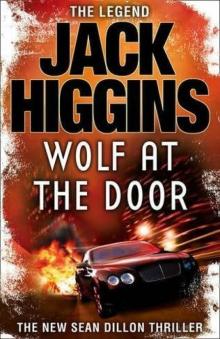 The wolf at the door sd-17
The wolf at the door sd-17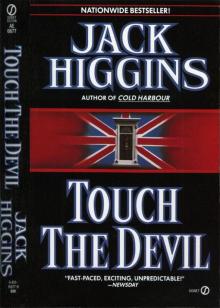 Touch The Devil
Touch The Devil The President’s Daughter
The President’s Daughter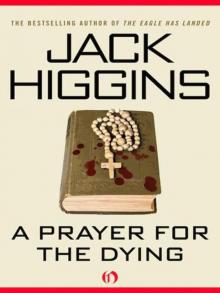 A Prayer for the Dying (v5)
A Prayer for the Dying (v5)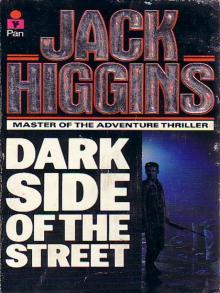 Dark Side Of The Street
Dark Side Of The Street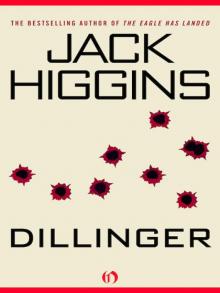 Dillinger (1983)
Dillinger (1983)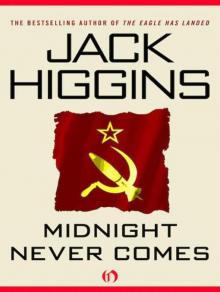 Midnight Never Comes pc-4
Midnight Never Comes pc-4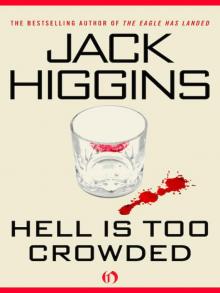 Hell Is Too Crowded (1991)
Hell Is Too Crowded (1991)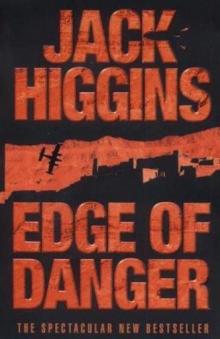 Edge of Danger sd-9
Edge of Danger sd-9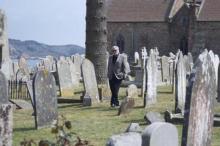 The Thousand Faces of Night (v5)
The Thousand Faces of Night (v5)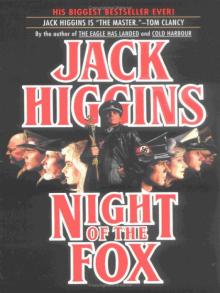 Night Of The Fox
Night Of The Fox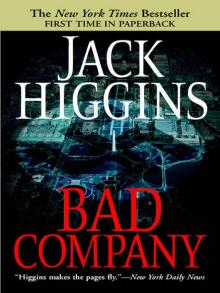 Bad Company
Bad Company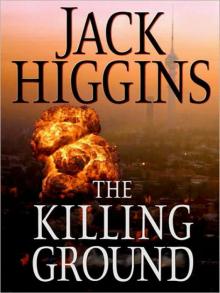 The Killing Ground
The Killing Ground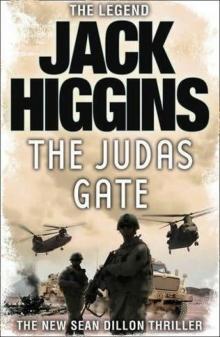 The Judas gate sd-18
The Judas gate sd-18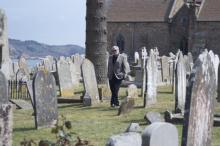 The Thousand Faces of Night (1961)
The Thousand Faces of Night (1961)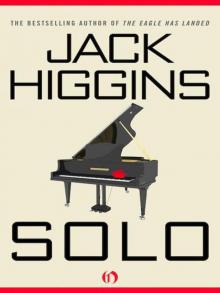 Solo (Aka the Cretan Lover) (v5)
Solo (Aka the Cretan Lover) (v5)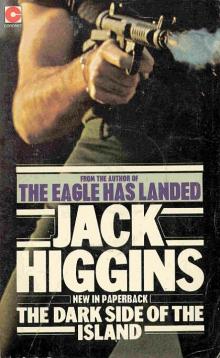 The Dark Side Of The Island
The Dark Side Of The Island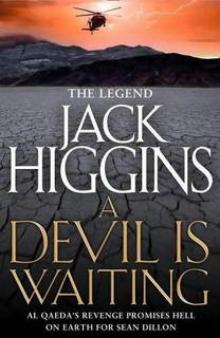 A Devil is vaiting sd-19
A Devil is vaiting sd-19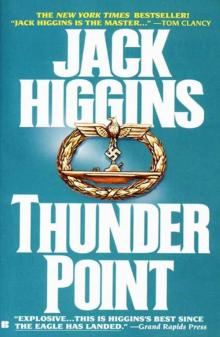 Thunder Point
Thunder Point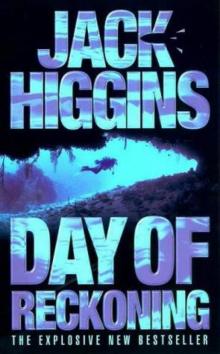 Day of Reckoning sd-8
Day of Reckoning sd-8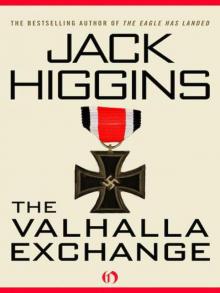 the Valhalla Exchange (v5)
the Valhalla Exchange (v5)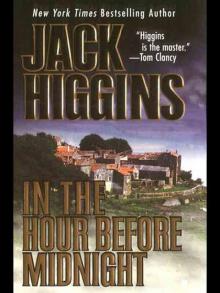 In the Hour Before Midnight
In the Hour Before Midnight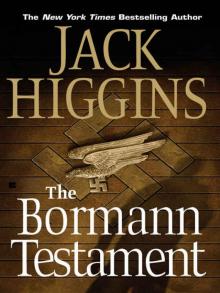 The Bormann Testament (The Testament of Caspar Schultz)
The Bormann Testament (The Testament of Caspar Schultz) The Judas Gate
The Judas Gate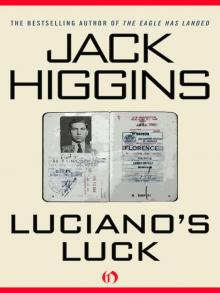 Luciano's Luck
Luciano's Luck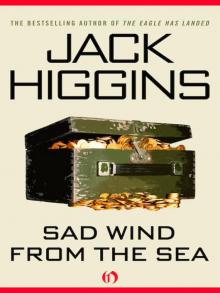 Sad Wind from the Sea (1959)
Sad Wind from the Sea (1959)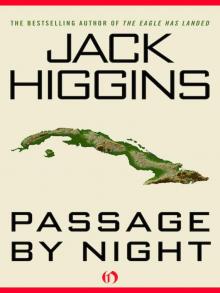 Passage by Night (1987)
Passage by Night (1987)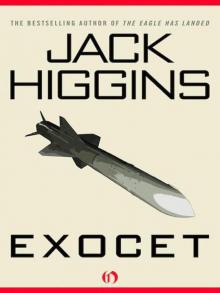 Exocet (v5)
Exocet (v5)